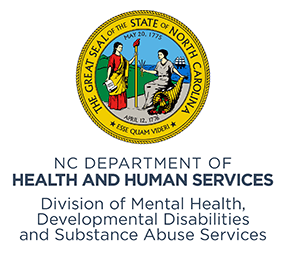8/29/2022 - Registration for this series is now full.


Please understand you are pre-registering to be selected into the cohort, if you are selected to participate you agree to attend the entire series and the (7) follow-up case consultation sessions that will start in December.
Please study the schedule tables below:
All training sessions will occur from 9:00 am – 11:00 am
| Date | Session Title |
| 10/17/2022 |
Definition of Developmental Disability and Types of Disability |
| 10/19/2022 |
Autism, Culture of Disability, Cultural Competency and Evidence Based Practices |
| 10/21/2022 |
Trauma and People with IDD, Crisis Prevention, Intervention and Management |
| 10/24/2022 |
Mental Health Assessment and Evidence Based Practice for People with IDD |
| 10/26/2022 |
Adaptations to Individual Therapy, Group Therapy, Family Therapy |
| 10/28/2022 |
Family Therapy continued, Play Therapy, Systems of Care and Care Coordination |
Consultation Follow Up Sessions Details:
All sessions will occur from 9:00 am – 11:00 am
| Date | Topic |
|
12/05/22 |
Definition of Developmental Disability and Types of Disabillity |
| 01/09/23 | Autism, Culture of Disability, Cultural Competency and Evidence Based Practices |
| 02/06/23 | Trauma and People with IDD, Crisis Prevention, Intervention and Management |
| 03/06/23 | Mental Health Assessment and Evidence Based Practice for People with IDD |
| 04/03/23 | Adaptations to Individual Therapy, Group Therapy, Family Therapy |
| 05/08/23 | Family Therapy continued, Play Therapy, Systems of Care and Care Coordination |
| 06/05/23 | Consultation Wrap up & Questions and Answers |
Capacity: 30 max
Contact hours: 12
Speaker: Brian Tallant, LPC, NADD-CC
Modality: This training will consist of 12 total hours of instruction over the course of the series. Each session will be 2 hours in length. Participants must complete all sessions in series to receive credit. Participants must also commit to the 7-follow-up consultation session that is apart of this learning collaborative. This is a live interactive virtual training via zoom video conferencing platform.
Registration: Individuals interested in attending this learning collaborative must complete a pre-register form. The Children with Complex Needs Specialist will review and select registrants to attend the learning collaborative based on their pre-registration submission. All registrants will be notified by email from BHS with their status into the learning collaborative by Friday, October 7, 2022.
Target Audience: State staff, LME-MCO staff, providers of both MH and IDD services, and other stakeholders in North Carolina; licensed clinicians and non-licensed providers who provide direct support services; psychologists that provide evaluations and other clinicians providing comprehensive clinical assessments; as well as other stakeholders to include social services, juvenile justice, and others.
Inclement Weather Policy: Any announcements regarding changes to the schedule due to inclement weather will be posted on https://bhs.unc.edu. Registered participants will also be notified by email.
ADA Statement: If you require any of the auxiliary aids or services identified in the Americans with Disabilities Act in order to participate in this program, please email us at bhs-support@unc.edu after completing registration.
Click here to view continuing education policy
Click here to view general training policies
Contact for Questions:
For questions, further information, or concerns, contact:
bhs-support@unc.edu
Or call (919) 445-0990
 Confirmation Notices and Certificates of Completion:
Confirmation Notices and Certificates of Completion:
Immediately after the training concludes participants will receive an email notifying them of the process and the manner, they will gain access to the evaluation and the certificate of completion for the training. The Certificate of Completion email will go within 3 to 5 business days after the training concludes to participants who met the time requirement listed in the continuing education policy based on the length of the training.
8/29/2022 - Registration for this series is now full.
Dual Diagnosis Foundations and Clinical Applications Learning Collaborative
Training Session Description:
The training series will begin with a focus on Dual Diagnosis Foundations; participants will discuss various types of disability, disability prevalence, etiology, phenotypes, and disability characteristics, including a close look at the diagnostic criteria and characteristics of an autism spectrum disorder. Participants will also discuss the experiences of people who have an IDD, understand common vulnerabilities, and appreciate the culture of people who have disabilities. The focus will then move towards discovering evidence-based treatments that have been successfully adapted for people who have an IDD. The series will investigate trauma vulnerabilities, understand rates of abuse and neglect, discuss the effects of trauma as well as adapted trauma treatment strategies for the population. Participants will consider ways in which crisis responders can support people who have an IDD who are experiencing a mental health crisis. The series will also include a focus on Dual Diagnosis Clinical Applications, describing mental health assessment best practices, as well as special clinical and cultural assessment implications for the population, with an exploration of common dynamics found in families with special needs children. Participants will discuss the incorporation of play therapy techniques into treatment and finish the didactic training by presenting concepts on care coordination and building systems of care for the dual diagnosis population. The training will be completed with a question-and-answer session and open discussion.
Learning Objectives:
Participants will be able to:
Describe the levels of developmental disability, various systems disability criteria, and medical versus social models of disability.
Define diagnostic criteria for an autism spectrum disorder and characteristics of ASD.
Interpret perspectives and vulnerabilities of people with IDD, as well as myths and facts needed to understand and provide effective treatment for the population
Describe various types of evidence-based treatments that have been successfully adapted for people with IDD.
Explain unique trauma vulnerabilities, rates of abuse and neglect, and evidence-based treatments of trauma for people with IDD.
Describe ways in which crisis responders can identify clients who have an IDD and explain appropriate ways in which to respond to them in a crisis.
Identify characteristics of IDD, characteristics of mental health symptomology, and how to differentiate and recognize overlap of these conditions using a bio-psycho-social approach.
Identify which assessment tools are preferred for the IDD population and clinically relevant considerations when conducting mental health assessment
Describe basic adaptations to Cognitive Behavioral Therapy for people with IDD to increase engagement, comprehension, and retention in various therapeutic modalities.
Name common dynamics within families of special needs children and how to address these dynamics to improve family functioning.
Identify the importance of incorporating elements of play into therapeutic interventions.
Define the various community stakeholders and affiliated service providers that are involved in the care of people with IDD and learn to coordinate care across systems.
All training sessions will occur from 9:00 am – 11:00 am
| Date | Session Title |
| 10/17/2022 |
Definition of Developmental Disability and Types of Disability |
| 10/19/2022 |
Autism, Culture of Disability, Cultural Competency and Evidence Based Practices |
| 10/21/2022 |
Trauma and People with IDD, Crisis Prevention, Intervention and Management |
| 10/24/2022 |
Mental Health Assessment and Evidence Based Practice for People with IDD |
| 10/26/2022 |
Adaptations to Individual Therapy, Group Therapy, Family Therapy |
| 10/28/2022 |
Family Therapy continued, Play Therapy, Systems of Care and Care Coordination |
Agenda:
9:00-9:05 am – Introductions of presenters and helpline information
9:05-10:45 am – Lecture of material
10:45-10:55 am – Discussion questions/ Q&A
10:55-11:00 am – Closing comments
Dual Diagnosis Foundations and Clinical Applications Learning Collaborative Series 2022-2023
The University of North Carolina at Chapel Hill School of Social Work has been approved by NBCC as an Approved Continuing Education Provider, ACEP No. 6642. Programs that do not qualify for NBCC credit are clearly identified. The University of North Carolina at Chapel Hill School of Social Work is solely responsible for all aspects of the programs. Each successfully completed webinar qualifies for 12 contact hour.
This course has been submitted the North Carolina Addiction Specialist Professional Practice Board for 12 SS contact hours.
Brian Tallant LPCP
 Brian Tallant is a Licensed Professional Counselor, NADD Certified Clinician and Director of the START Program at Rocky Mountain Human Services in Denver. He is also the owner of Neurodiverse Communities, LLC where he provides training and consultation to a variety of professional and academic organizations. Brian has been a counselor and administrator in the community mental health field for close to 30 years. He is a contributing member of the National Child Traumatic Stress Network’s (NCTSN) IDD Expert Panel, and serves on the Board of Directors of NADD, an association for individuals with developmental disabilities and mental health needs. Brian conducts workshops nationally and internationally on adapted mental health treatments for people with IDD, and resilience planning for people experiencing secondary traumatic stress within helping professions.
Brian Tallant is a Licensed Professional Counselor, NADD Certified Clinician and Director of the START Program at Rocky Mountain Human Services in Denver. He is also the owner of Neurodiverse Communities, LLC where he provides training and consultation to a variety of professional and academic organizations. Brian has been a counselor and administrator in the community mental health field for close to 30 years. He is a contributing member of the National Child Traumatic Stress Network’s (NCTSN) IDD Expert Panel, and serves on the Board of Directors of NADD, an association for individuals with developmental disabilities and mental health needs. Brian conducts workshops nationally and internationally on adapted mental health treatments for people with IDD, and resilience planning for people experiencing secondary traumatic stress within helping professions.